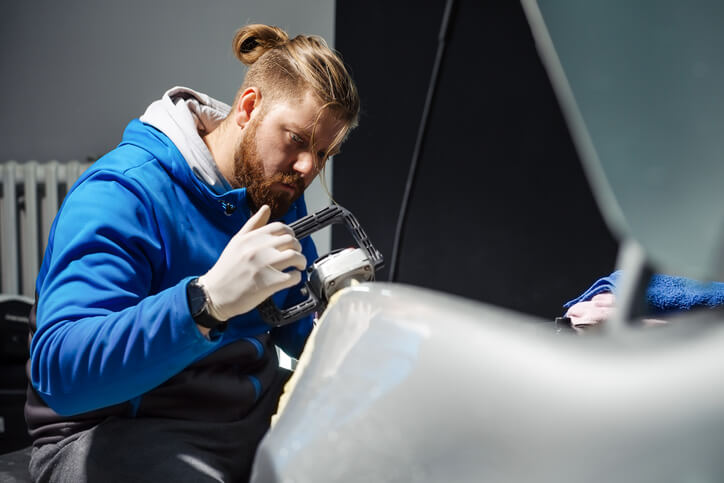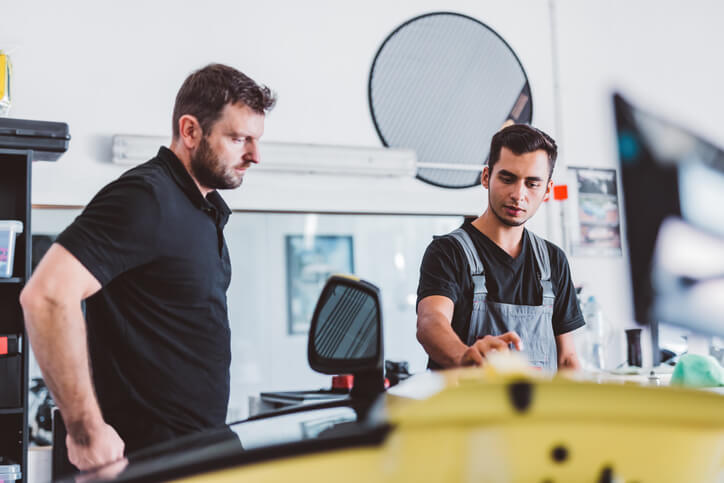Beyond Steel: Repairing Aluminum and Composite Car Bodies in Collision Repair
Modern cars aren’t just made of steel anymore. As the auto body training industry continues to evolve, aluminum and composite materials are increasingly replacing traditional steel components. These materials make vehicles lighter and more fuel-efficient, but they also demand specialized skills and equipment when it comes to repairs.
That’s why today’s auto body training must go far beyond basic metalwork. At ATC Surrey, students in the Auto Body & Collision Repair Course are trained on how to safely and effectively repair newer body structures so they’re ready to meet the demands of today’s job market.
Why Car Makers Are Moving Beyond Steel
Aluminum and composite materials are now commonly used in hoods, doors, fenders, and even full vehicle frames. They reduce weight without compromising strength. For automakers, this means better fuel efficiency and performance. For technicians, it means adapting to new repair methods.
These materials behave differently under stress and heat. Traditional welding and repair techniques can’t always be applied safely or effectively. That’s why updated automotive training is critical.
How Aluminum Repair Differs From Steel
Aluminum doesn’t react like steel when it’s bent, heated, or reshaped. It stretches more easily and requires different repair approaches. It also reacts strongly to contamination, so even having the wrong metal shavings nearby can ruin a repair or weaken a panel.
At ATC, automotive training students learn:
- How to identify aluminum panels
- Specialized techniques like self-piercing rivets and flow-drill screws
- How to prevent galvanic corrosion (when aluminum touches other metals)
- How to properly clean, cut, and bond aluminum
You’ll also learn why separate workstations and equipment are a must when working on aluminum to avoid cross-contamination. This isn’t just about precision, it’s about safety and long-term durability.

Working With Composites: Plastics, Carbon Fiber & More
Beyond aluminum, collision repair shops also deal with composites like carbon fiber and reinforced plastics. These materials are lightweight and impact-resistant, but repairing them requires entirely different knowledge and equipment.
Heat guns and adhesives replace welders. Sanding and shaping require surgical precision. Structural repairs may not be possible at all; in some cases, damaged parts need full replacement.
Auto body training at ATC Surrey introduces students to:
- Composite material identification
- Bonding and reshaping techniques
- Cosmetic and structural limitations of composite repair
- Tools like infrared curing lamps and vacuum-bag systems
As more EVs and luxury cars adopt carbon fiber and composites, these skills will only grow more valuable.
The Importance of Up-to-Date Auto Body & Collision Repair Training
Shops are already shifting their hiring practices. Many employers now ask if applicants have hands-on experience with aluminum and composite repairs. Those who don’t? They’re likely to fall behind.
That’s why ATC Surrey’s Auto Body & Collision Repair Course includes specific modules on these modern materials. You’ll get access to:
- Real-world repair scenarios using aluminum and composite panels
- Hands-on practice with industry tools and equipment
- Instruction from professionals who’ve worked on current makes and models
- A curriculum shaped by what employers are asking for today.

Launching Your Collision Repair Career With Atc Surrey
Graduates of the auto body program leave ready to work on a wider range of vehicles, from traditional steel trucks to next-gen electric vehicles made of aluminum and composites. And because our training focuses on what’s happening in the field right now, you’ll enter the job market with confidence and credibility.
Want to be the kind of technician that today’s employers are looking for? Start with automotive training that’s built for today’s vehicles.
Are you looking for a comprehensive Auto Body & Collision Repair Course?
Contact ATC Surrey for more information.


